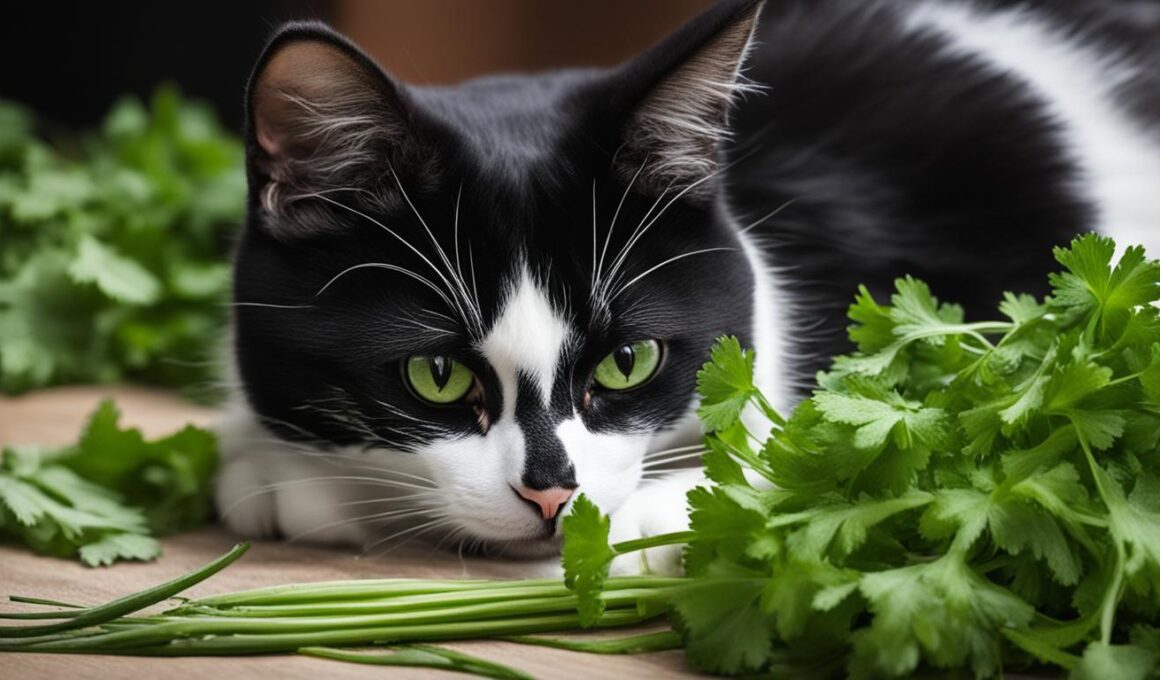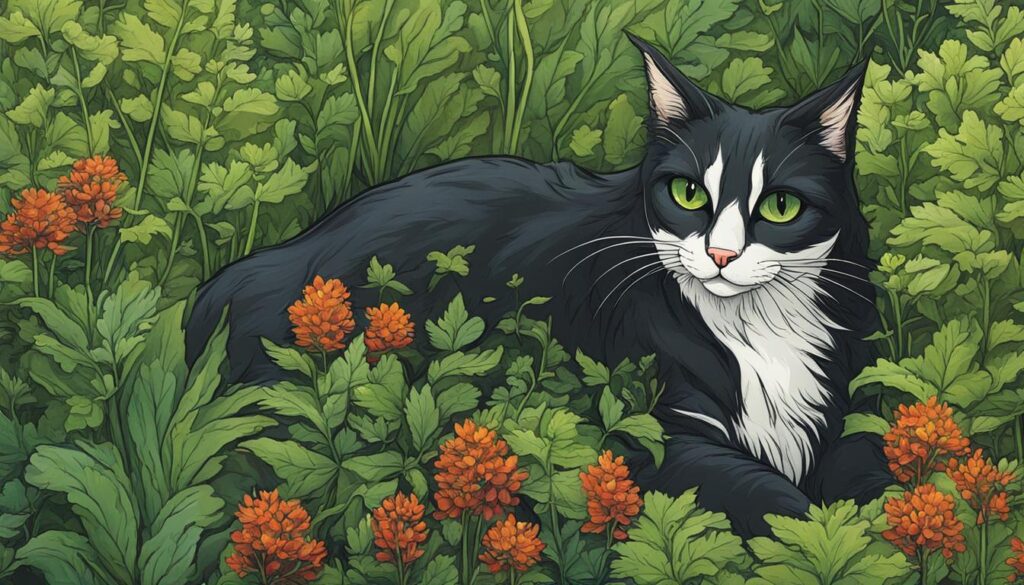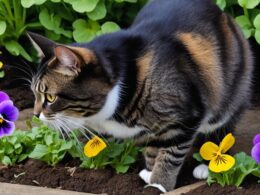When it comes to cooking, cilantro is a popular herb known for its unique flavor and aroma. But what about its effects on our feline friends? Are cats at risk if they consume cilantro? Let’s dive into the topic.
While there is limited research specifically on the effects of cilantro on cats, it is generally considered to be non-toxic to our furry companions. However, it’s essential to be aware of the potential health effects and risks associated with feeding cilantro to cats.
Herbs Safe for Cats
When it comes to providing a balanced and nutritious diet for your cat, incorporating herbs can be a great way to enhance their meals. Fortunately, there are several herbs that are considered safe for cats to consume.
Valerian
Valerian is a herb that is known for its calming properties. It can help reduce anxiety and promote relaxation in cats. If your cat tends to be stressed or anxious, introducing a small amount of valerian may provide some relief.
Witch Hazel
Witch hazel is a natural astringent that can be used topically on cats. It is often used to soothe skin irritations or minor wounds. When applied properly, witch hazel can help alleviate itching and promote healing.
Echinacea
Echinacea is an immune-boosting herb that can help support your cat’s overall health. It has anti-inflammatory properties and may help reduce the severity and duration of common respiratory infections in cats.
Licorice Root
Licorice root is a herb that can help soothe the digestive system of cats. It can be beneficial for cats experiencing stomach upset, diarrhea, or acid reflux. Additionally, licorice root may help stimulate appetite in cats who have a decreased interest in food.
Cat’s Claw
Cat’s claw is a herb that has been used for centuries in traditional medicine. It is known for its anti-inflammatory and immune-boosting properties. Cat’s claw can help support your cat’s immune system, reducing the risk of infections and promoting overall wellness.
Dandelion Root
Dandelion root is a herb that can aid in maintaining a healthy liver and promoting healthy digestion in cats. It has diuretic properties, which can help eliminate toxins from the body. Dandelion root may also help stimulate appetite in cats.
Calendula
Calendula is a gentle and soothing herb that is commonly used in skincare products. When applied topically, calendula can help relieve skin irritations and promote healing. It is often used to treat minor cuts, scrapes, and burns in cats.
Goldenseal
Goldenseal is a powerful herb with antimicrobial properties. It can be used externally to cleanse wounds and promote healing. In addition, goldenseal may help support the immune system and alleviate symptoms of respiratory infections in cats.
Culinary Herbs
In addition to the specific herbs mentioned above, various culinary herbs such as basil, cilantro, dill, rosemary, thyme, and catnip can also be safely incorporated into your cat’s diet. These herbs not only add flavor to their meals but also provide additional health benefits.
Herbs to Avoid
While there are many herbs that are safe for cats, it’s essential to be aware of the ones that should be avoided due to their potential toxicity or adverse reactions. As a responsible cat owner, it’s crucial to understand the herbs that can pose a risk to your feline companion’s health. Here are some herbs that you should avoid giving to your cat:
- Garlic: Garlic, along with other members of the allium family such as onions and chives, can cause severe damage to a cat’s red blood cells. Ingesting garlic can lead to anemia or even prove fatal for your cat.
- Marijuana: While marijuana may have recreational or medicinal uses for humans, it is toxic to both cats and dogs. If a cat ingests marijuana, it can experience a range of symptoms, including lethargy, loss of coordination, vomiting, and even seizures.
- Chamomile: While chamomile is generally considered safe for humans, certain types of chamomile can be harmful to cats. Ingesting these varieties can cause dermatitis, vomiting, diarrhea, and allergic reactions in pets.
- St. John’s Wort: St. John’s Wort is a herb commonly used for its mood-stabilizing properties in humans. However, in pets, it can cause a condition called photosensitization, making their skin sensitive to light and prone to sunburn.
- Herbal Irritants: Some herbs, such as lemongrass, mint, oregano, and tarragon, can cause digestive issues in cats. Ingesting these herbs may lead to vomiting and diarrhea, which can be distressing for your feline friend.
It’s essential to keep these herbs out of your cat’s reach and ensure they are not accidentally exposed to them. Your cat’s well-being should always be a top priority, and avoiding these herbs will help protect their health.
If you are unsure about whether a particular herb is safe for your cat, consult with your veterinarian before introducing any new herbs into their diet. Taking this precautionary step will ensure that you make informed decisions about your cat’s dietary needs and overall health.
Conclusion
In conclusion, cilantro is generally considered to be safe for cats to consume. However, it is important for pet owners to be aware of the potential risks and health effects associated with feeding cilantro to their feline friends.
While there is limited research specifically on cilantro and cats, it is always best to consult with a veterinarian before introducing any new herbs to your cat’s diet. They can provide guidance on which herbs are safe and appropriate for your cat’s individual needs.
Additionally, it is important to closely monitor your cat for any adverse reactions or digestive issues when feeding them herbs, including cilantro. If you notice any unusual symptoms or behavior changes, it is important to seek veterinary care.
By being informed and cautious about the herbs you feed your cat, you can help ensure their safety and well-being. Remember, your cat’s health is your top priority!
Can Vinegar Repel Cats as Well?
Yes, vinegar repels chipmunks, but it may not be as effective for repelling cats. While some cats may be deterred by the strong scent of vinegar, others may not be bothered at all. It’s worth a try, but it’s not a guaranteed solution for keeping cats away.










